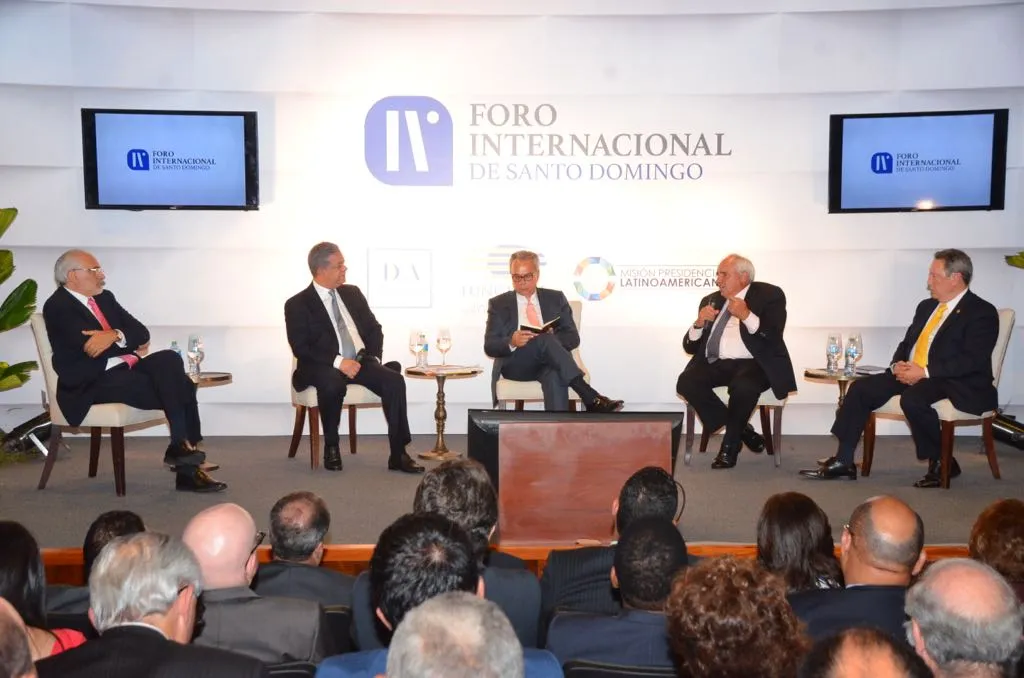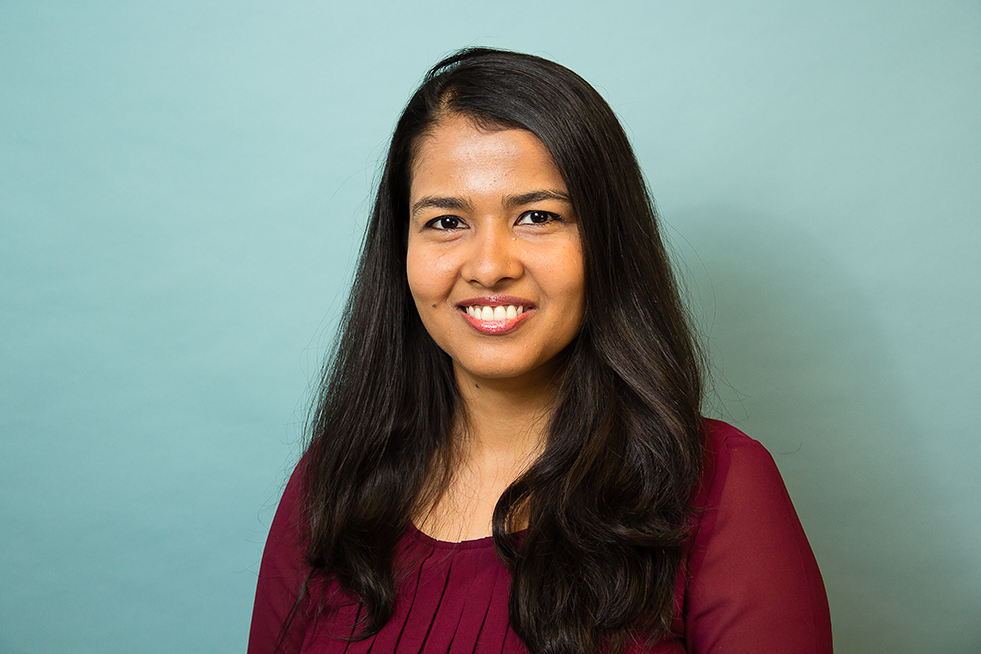International IDEA and FUNGLODE organize the IV International Forum of Santo Domingo

The Fourth International Forum of Santo Domingo under the theme "The state of democracy in Latin America: 40 years since the third wave of democracy", organized by the Global Foundation for Democracy and Development (Funglode for its Spanish acronym), together with International IDEA, took place from 16-18 January 2018 in Santo Domingo, the capital city of Dominican Republic.
Este artículo se encuentra disponible en Castellano.
The International Forum of Santo Domingo is a permanent dialogue and exchange initiative established in 2009, which is attended by former presidents, politicians, intellectuals, journalists, officials of international organizations, and representatives of civil society from Latin America, Europe and the United States. During the three-day event, the participants reflected on the state of Latin American democracies and their institutions, in order to foster reflection on the priorities and challenges of the political-institutional and socioeconomic agenda for the region in the coming years. The meeting was held at the onset of an electoral marathon in Latin America, with six presidential elections to be held in 2018, which are part of the Latin American electoral super-cycle (14 presidential elections between November 2017 and the end of 2019, two of which already took place: Chile and Honduras). The six presidential elections in the region will be held in Costa Rica, in February; Paraguay, in April; Colombia, in May; Mexico, in July; Brazil, in October, and, eventually, if an agreement is reached, in Venezuela.
As part of the inaugural program, Engineer Sergio Bitar, Member of the Advisory Council of International IDEA, presented the publication "The State of Democracy in the World 2017: Exploring Democracy´s Resilience". The first edition of the publication explores the resilience of democracy since 1975, focusing on the challenges and risks to democracy and the enabling conditions for its resilience. Resilience, for this publication, is defined as a property of social systems to cope, survive and recover from the complex challenges and crises that present stress or pressure that can lead to a systemic failure. The ability of the system to be flexible, to recover, to adapt and to innovate in the face of impending challenges points to its resilience.
The presentation of the publication by Engineer Bitar served as the basis for the discussion during the inaugural panel with four ex-presidents from Latin America. The panel, titled the "State of democracy globally and in Latin America," was moderated by Dr Daniel Zovatto, Regional Director for Latin America and the Caribbean of International IDEA, who through an introduction of socio-political dimension of democracy at the global and regional level, led to debate and reflection among the former presidents of Colombia, Ernesto Samper (1994-1998); Carlos Mesa, former president of Bolivia (2003-2005); Vinicio Cerezo, from Guatemala (1986-1991), and the host of the event, former President Leonel Fernández (1996-2000/2004-2012). Among several important personalities who attended the inaugural panel was Margarita Cedeño de Fernández, Vice President of the Dominican Republic.
On Wednesday, January 17, the first session focused on the "Analysis of the democratic political context in Latin America," chaired by Leonel Fernández, with the participation of Esperanza Martínez, Senator from Paraguay; Tony Raful, Deputy and President of the Central American Parliament; Ignacio Walker, Senator from the Republic of Chile; and Lourdes Flores, Former President of the Popular Christian Party (PPC) of Peru. The second session on the theme: "Analysis of the 2018 electoral marathon in Latin America from the perspective of electoral integrity", moderated by Daniel Zovatto, had as speakers Luis Vicente León, President of Datanálisis; Josette Altmann, General Secretary of the Latin American Faculty of Social Sciences (FLACSO); Adriana Mejía Hernández, Executive Director of the Institute of Political Science Hernán Echavarría Olózaga; José Woldenberg, former president of the Institute of Studies of the Democratic Transition; Torquato Jardim, Minister of Justice and Public Security of Brazil, and Guzmán Ibarra, President of the Political Science Association of Paraguay. The third session "Analysis of socioeconomic context in Latin America", was moderated by Ernesto Samper, with the interventions of Hugo Beteta, Director of the Sub-regional headquarters of the Economic Commission for Latin America and the Caribbean (ECLAC), in Mexico; José Manuel Salazar-Xirinachs, Regional Director for Latin America and the Caribbean of the International Labor Organization (ILO); Margarita Cedeño de Fernández, Vice President of the Dominican Republic, and political analyst Carlos Alzugaray. The Executive Director of Funglode, Marco Herrera, led the fourth session on "New agenda of the middle class in Latin America". The speakers for this session were Michael Reid, senior editor of The Economist magazine; Sergio Bitar, former Minister of Chile, academic and president of the Foundation for Democracy, and Mónica Xavier Yelpo, Uruguayan politician.
On the morning of Thursday the 18th, Vinicio Cerezo presided over the fifth session, with presentations from Iván Velásquez, Commissioner of the International Commission against Impunity in Guatemala (CICIG); Juan Carlos Botero, Executive Director of the World Justice Project; Cynthia Arnson, Director of the Latin American Program of the Woodrow Wilson International Center for Scholars and Josefina Reynoso Chicón, Director of the Center for Security and Defense Studies (CESEDE), who reflected on the "Rule of Law: insecurity, corruption and impunity in Latin America" . The "Impact of social networks / post-trust in democracy" was analyzed in the sixth session, moderated by former President Mesa, with the interventions of journalists Jorge Fontevecchia and Fernando Fuentes; Sergio Gahona, Deputy of the Congresss of Chile, and José Luis Vargas, Electoral Judge of the Electoral Tribunal of the Federal Judicial Branch (TEPJF for its Spanish acronym) of Mexico. With the moderation of Sergio Bitar, the final session was an important space for reflection on the crisis in Venezuela, with presentations from three Venezuelans, Luis Vicente León, President of Datanalisis; Pedro Benítez, Coordinator of the Public Policy Commission of the Democratic Unity Table, and historian María Eugenia Mosquera.




